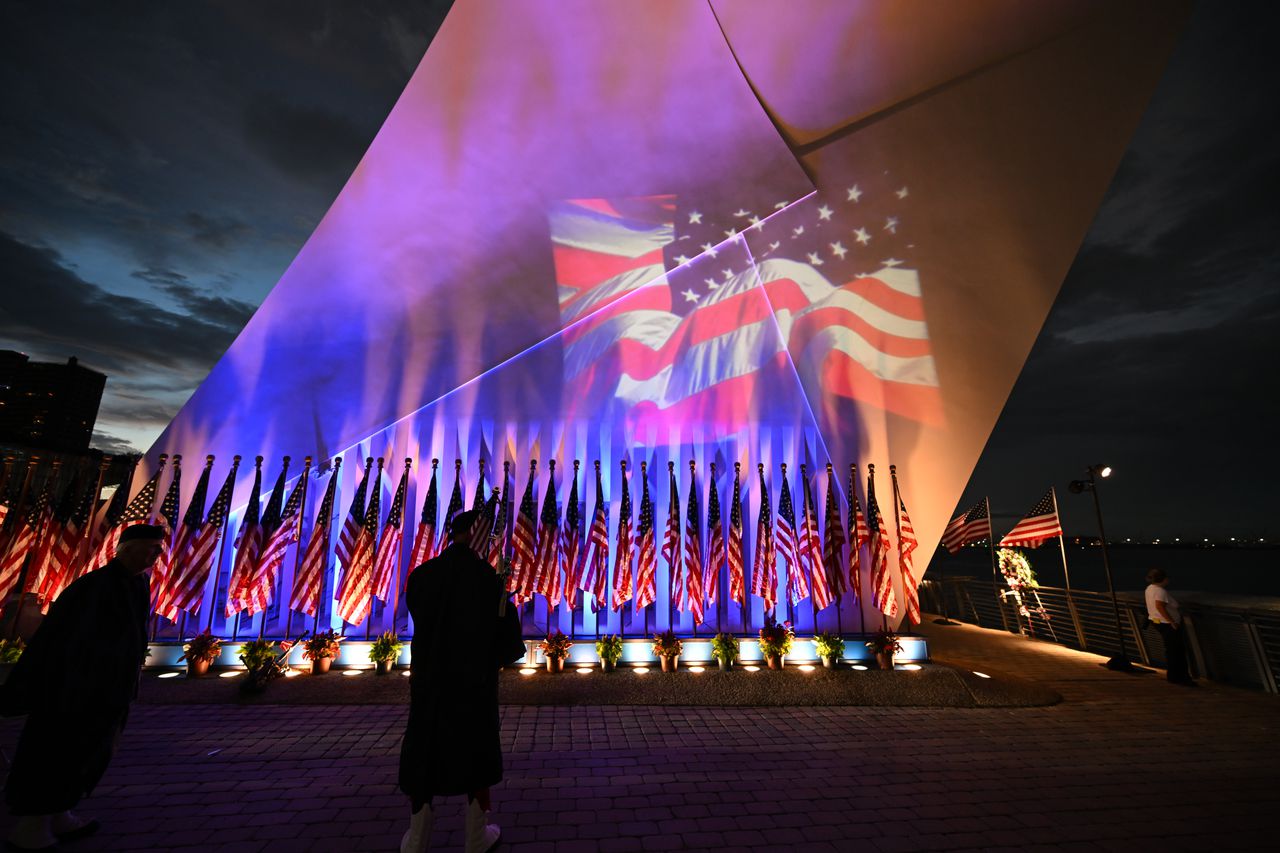Beth Thames: Children should be taught people who gave their lives shouldnât be forgotten
This is an opinion column
This is the week we all think about 9-11 and what happened that day. We got the tragic news wherever we were, all over the world.
One friend of mine was in Europe on a business trip when the hotel manager told her about the attack and directed her to the tv screen. The broadcast was not in English, but the pictures of the smoking Twin Towers needed no translation.
Another friend was in New York hoping his job interview that morning would go well. He was ready for a change. When his subway suddenly halted before his stop, he and the other confused passengers got off, wondering what was happening. Police officers told them to hurry up and leave the area, no questions asked. They didn’t have the answers, anyway.
Another was in her office building in Lower Manhattan, sipping coffee and straightening her desk when she got the call. Leave now! Go home! Get out! And when she did, the streets were full of people running to safety, wherever that might be.
And so the horror of 9-11 made its way into the world, like a bad rumor that everyone hoped was a lie. But it wasn’t. I was getting ready for work that morning when my daughter called and told me to turn on the tv to see the terrible thing that had just happened—was still happening.
I’d been to the World Trade Center just once, twenty years before the attack. My friend and I flew from North Carolina to pick up her VW camper she and her husband had shipped over from Germany. They’d lived in it for a year, traveling around Europe and sleeping in campgrounds. When she saw it being driven off the ship, she wondered if someone else had been living in it, too. It looked a little seasick, greener than its usual hue, and a bit battered.
The clerks at the Trade Center teased us about our southern accents and gave us the keys. Then we were off, driving back home, not knowing the very place we’d just stood would be gone—vanished— by the time our toddler children were in college.
We also couldn’t know that tragedy would bring people together in a way that seems rare now, all of us working on the same team without bickering—the American team. Nobody on that team wanted the people who died to be forgotten. They’ve made sure of it.
The 9-11 Memorial rose out of the concrete, steel, rubble, and dust and stands today to honor the the 2,983 people who were killed that day. Their names are inscribed on a low, bronze wall circling around two reflecting pools. Visitors can leave notes in the crevices between the names. When I visited there, I imagined they were leaving letters saying goodbye, over and over, or descriptions of what has happened in the family since the deceased passed over. Weddings. Births. Graduations. Deaths.
There is a quietness about the place, even though it’s in the middle of one of the world’s busiest cities. There’s no loud music and nobody is shouting or selling things. The memorial sits on 8 acres of land. It features twin waterfall pools that sit in the footprint where the buildings used to be. The sound of the water is soothing. It’s meant to be.
The memorial is called “Reflecting Absence.” People lowered their voices when they stood in front of the wall and traced the names of the deceased with their fingers. Even the school groups that came on field trips with their teachers stood quietly and listened to the story of the Callery Pear, a tree damaged at Ground Zero and rehabilitated and brought to the Memorial in 2010.
New limbs grow out of the stumps. Each year, the Memorial Committee sends seedlings to communities around the world that have experienced tragedies such as this one.
I’ve visited the place just twice. The first time, they were still building the facility. The second time, the wall was complete and the children traced their fingers over the names on it. Then they got back in line.
As a nation, we’re trying to decide what children should be taught in history classes. Surely they should be taught that people who gave their lives shouldn’t be forgotten, and seeds that are planted grow into strong trees.
You may contact Beth Thames at [email protected]
